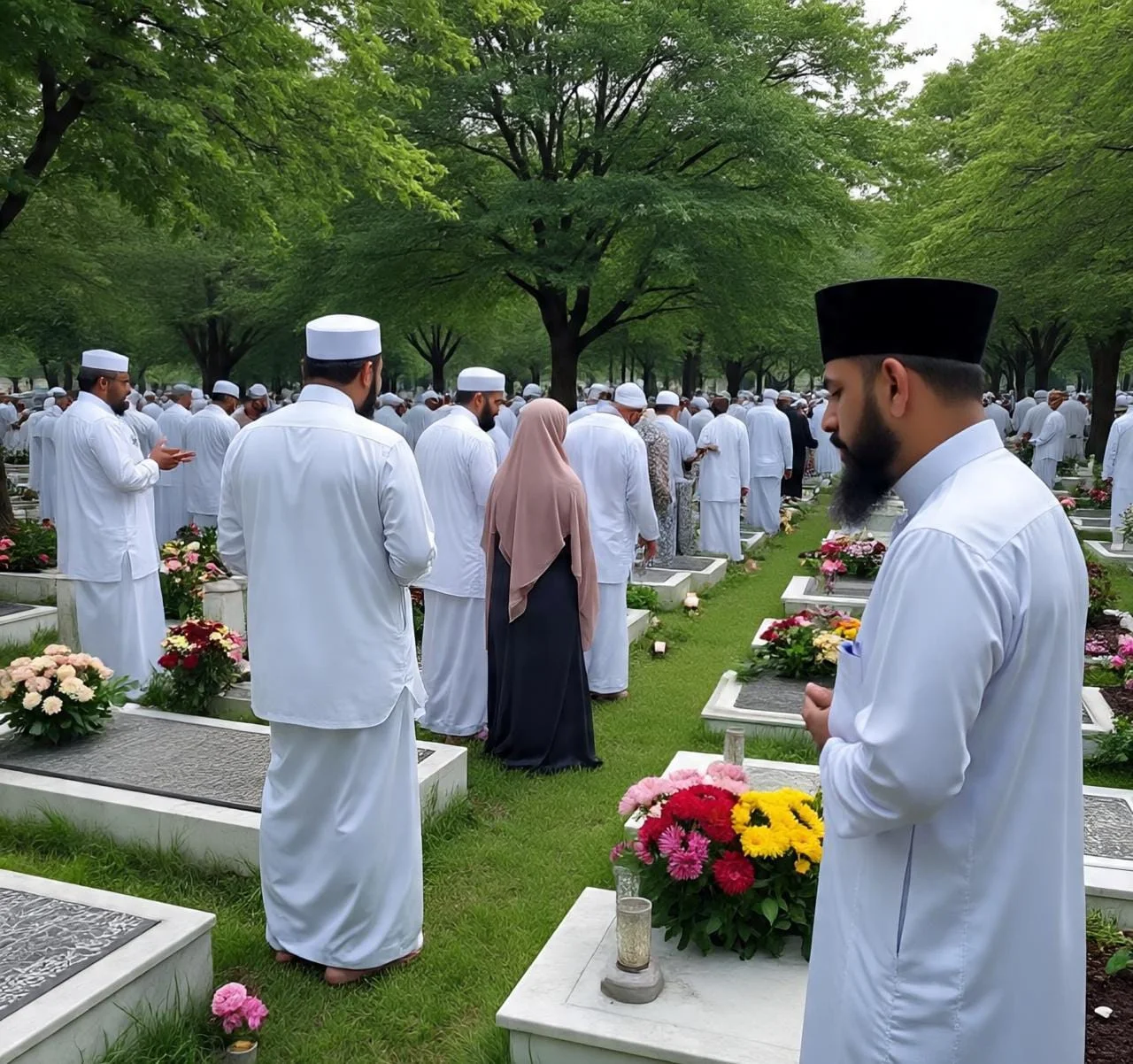
The Forgotten Beauty of Visiting Graves – A Journey of Reflection and Love
There are moments in life when silence speaks louder than words—when the heart, standing among the stillness of gravestones, begins to understand what it means to live with purpose. Visiting a graveyard is not merely a tradition of mourning; it is an act of awakening. It reminds the believer that life is fragile, that every breath is a gift, and that every soul is on a journey returning to its Creator. Yet, in the quiet embrace of these sacred grounds, lies a profound etiquette—an adab—that transforms the visit from a ritual into a moment of divine intimacy. Few know these etiquettes deeply, yet they hold treasures of wisdom and serenity that can change how we perceive death—and life itself.
Many people visit graves hurriedly, offering brief prayers before walking away, unaware that each step taken in a graveyard can become an act of reflection that softens the heart. The Prophet Muhammad encouraged his followers to visit the graves, not to dwell in sorrow, but to remember the reality of the Hereafter. It is through remembrance that the heart awakens, for in reflection, the soul finds humility. When the believer stands before the resting places of others, they see not only the end of others but the mirror of their own destiny.
Allah says:
“Every soul shall taste death, and you will only be given your full compensation on the Day of Resurrection.” (Surah Aal Imran, 3:185)
This verse is not a statement of fear but of truth—a reminder that our journey has an inevitable destination. It calls us to prepare our hearts for that meeting with Allah, not through sadness, but through awareness. To visit the graves is to reconnect with the eternal reality of life beyond this world.
When the Prophet visited graves, his words carried the fragrance of compassion. He said:
“Peace be upon you, O inhabitants of the graves, believers and Muslims. Indeed, we will, Allah willing, be joining you. We ask Allah for well-being for us and for you.” (Sahih Muslim)
In this greeting lies a profound expression of love and unity. The Prophet did not speak to the dead as though they were gone, but as though they were brothers and sisters who had merely traveled ahead. This is the essence of visiting graves—to renew the bond of faith that transcends the boundaries of life and death. Such visits are not about fear of what awaits; they are about love for what endures—the eternal mercy of Allah.
The great scholar Imam al-Ghazali once wrote, “The grave is not the end of life, but the beginning of an awakening. The wise visit the graves not to mourn but to remember the truth of their existence.” These words echo through the heart of every believer who steps into a cemetery with humility. The air feels different there—not heavy with sorrow but filled with stillness, a silence that invites reflection. One realizes that beneath every stone lies a story—a life once filled with dreams, laughter, pain, and prayer. And yet, all stories find their final rest in the same soil, reminding us that the greatest equality in existence lies in our return to dust.
Visiting the graves becomes an act of worship when done with the right intention and manners. It is a time to remember that death is not distant, that our time is limited, and that the greatest preparation for the Hereafter is a heart free of arrogance and full of repentance. It is also a moment to make dua for the deceased, for the Prophet said that the dead find comfort in the prayers of the living. To pray for them is to express love beyond separation, mercy beyond time.
Those who truly understand the adab of visiting graves know that it is not merely about walking among tombstones but about walking through the corridors of one’s own heart. The cemetery becomes a mirror—reflecting back the truth of our spiritual state. Do we still cling too tightly to the world? Have we forgotten that our purpose is not to live forever here, but to prepare for forever there?
In this light, the visit becomes not an end, but a beginning—a renewal of faith, a whisper of repentance, a return to consciousness. The one who visits with humility leaves lighter, as though a burden has been lifted. Their heart softens, their gaze deepens, and their soul remembers what truly matters.
Continue to the Next Page The etiquettes of visiting graves are not ancient customs—they are keys to spiritual awakening. Continue reading to discover the seven profound etiquettes that few truly understand, yet hold the power to purify the heart and deepen your connection with Allah. The next page reveals the first secret: how intention transforms a simple visit into an act of divine remembrance. Do not miss it—the wisdom of the Prophet awaits your heart.



